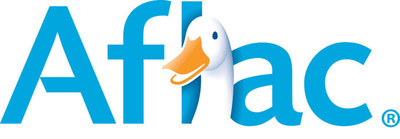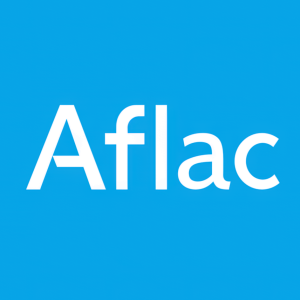Aflac Study: Men's Health Often in Women's Hands
Rhea-AI Summary
Aflac has released its 2021 Men's Health Issues Survey, highlighting a disparity between men's health perceptions and realities. Although 90% of men believe they lead healthy lifestyles, CDC data shows nearly half have high blood pressure, and 43% are obese. The study reveals that while spouses often encourage men to seek medical care, 58% hold beliefs that deter them from proactive health check-ups. Key barriers include perceived costs and misconceptions about masculinity. Aflac emphasizes the need for more education on men's health and suggests supplemental insurance to alleviate treatment costs.
Positive
- The survey reveals the potential for increased awareness and education on men's health, highlighting Aflac's commitment to addressing these issues.
- Aflac's supplemental insurance options can alleviate some financial concerns regarding healthcare access, encouraging proactive health measures.
Negative
- The survey indicates that 45% of men did not visit their doctor for an annual check-up, suggesting a lack of engagement with healthcare.
- 58% of men agree with beliefs that hinder them from seeking proactive healthcare, which may pose long-term health risks.
News Market Reaction
On the day this news was published, AFL declined 0.17%, reflecting a mild negative market reaction.
Data tracked by StockTitan Argus on the day of publication.
COLUMBUS, Ga., June 8, 2021 /PRNewswire/ -- In connection with June's Men's Health Month, created to bring awareness of male-specific health issues, Aflac, a leading provider of supplemental insurance products in the U.S., released findings of its new 2021 Men's Health Issues Survey. The study suggests that men's optimism about their health may not necessarily be realistic, and one of the most common motivators for men to see their doctor — the women in their lives — can often lead to arguments.
According to the national online survey of 1,000 U.S. men,
The motivating voices of reason for men
Men agree that a positive, encouraging nudge to go to the doctor can help, with
However, the topic of going to the doctor can be a contentious one for men. Although
Identifying barriers to better health for men
Lack of education and awareness. The Aflac survey notes that only one-third of respondents feel well informed of the various illnesses and ailments that commonly affect men, while
Negative reasons or beliefs preventing reaching out for help. Despite
- It is easier to go to a walk-in urgent care facility or emergency clinic to see a doctor instead of my primary care physician.
- Most ailments will heal themselves.
- I'm too busy with work to see the doctor.
- I feel that going to the doctor makes me feel less masculine.
Men also experience apprehension related to going to the doctor. Over 1 in 5 men (
High cost of medical care. This is another concern for men, with
- Not pursuing physician-recommended health screenings and follow-up treatments.
- Not filling a prescription medication after going to see a doctor for a health issue.
- Avoiding going to see a doctor for signs or symptoms of a serious illness or injury.
"Whether it stems from a fear of the doctor, high costs, perceptions around masculinity or a general lack of urgency, men too often avoid preventative care," said Jeramy Tipton, senior vice president of Distribution Expansion and Consumer Markets at Aflac. "The survey results make it clear that more education and discussion around men's health issues is necessary, as well as additional resources such as supplemental insurance to help with the out-of-pocket medical costs that appear to be deterring many men from taking care of themselves."
Those looking to spur men to seek proactive care may want to address their concerns about the high cost of medical care. For example,
"When encouraging men to seek proactive care for their well-being, loved ones may be more successful if they consider how to help them alleviate apprehensions about medical costs," Tipton added. "One tool for men's financial toolboxes is Aflac supplemental insurance, which helps with the expenses health insurance doesn't cover. Some policies include a wellness or health screening benefit that pays cash benefits fast for staying on top of one's health."
For the full findings from the 2021 Aflac Men's Health Issues Survey, visit Aflac.com/MensHealth. Get to know how Aflac can help with the expenses health insurance doesn't cover at Aflac.com.
About Aflac Incorporated
Aflac Incorporated (NYSE: AFL) is a Fortune 500 company helping provide protection to more than 50 million people through its subsidiaries in Japan and the U.S., where it is a leading supplemental insurer by paying cash fast when policyholders get sick or injured. For more than six decades, insurance policies of Aflac Incorporated's subsidiaries have given policyholders the opportunity to focus on recovery, not financial stress. Aflac Life Insurance Japan is the leading provider of medical and cancer insurance in Japan where it insures 1 in 4 households. For 15 consecutive years, Aflac Incorporated has been recognized by Ethisphere as one of the World's Most Ethical Companies. In 2021, Fortune included Aflac Incorporated on its list of World's Most Admired Companies for the 20th time, and Bloomberg added Aflac Incorporated to its Gender-Equality Index, which tracks the financial performance of public companies committed to supporting gender equality through policy development, representation and transparency, for the second consecutive year. To find out how to get help with expenses health insurance doesn't cover, get to know us at aflac.com.
About the 2021 Aflac Men's Health Issues Survey
The 2021 Aflac Men's Health Issues Survey is a national online survey of 1,000 U.S. men fielded in April 2021 by Hill+Knowlton Strategies. For full survey findings, visit Aflac.com/MensHealth.
Media contact: Jon Sullivan, 706.573.7610 or jsullivan@aflac.com
Analyst and investor contact: David A. Young, 706.596.3264 or dyoung@aflac.com
![]() View original content to download multimedia:http://www.prnewswire.com/news-releases/aflac-study-mens-health-often-in-womens-hands-301307862.html
View original content to download multimedia:http://www.prnewswire.com/news-releases/aflac-study-mens-health-often-in-womens-hands-301307862.html
SOURCE Aflac








